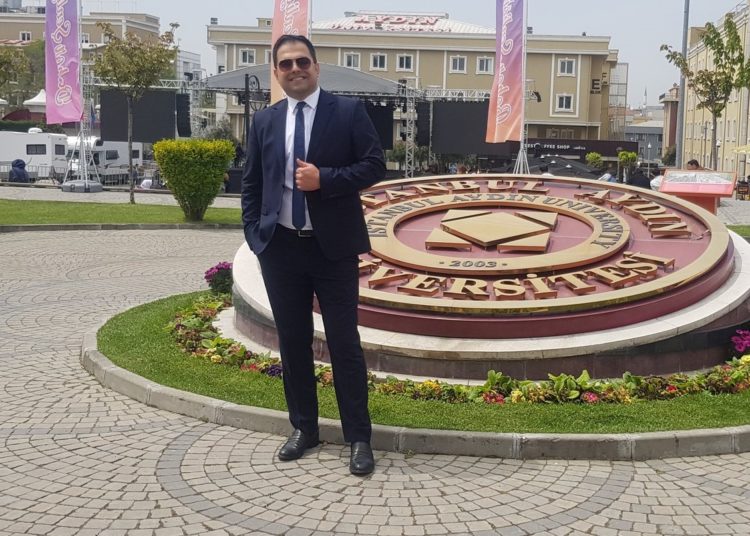Nordic Monitor
UN rapporteurs implicitly accused Turkey of allowing Iranian intelligence to perpetrate or orchestrate extrajudicial killings in Turkish territory and of allowing an Iranian who reportedly played a key role in the assassination of Masoud Molavi Vardanjani in Istanbul to escape to Iran, a joint UN letter revealed.
Vardanjani was shot dead on an Istanbul street on November 14, 2019, a year after he left Iran and sought refuge in Turkey. Citing Turkish officials, Reuters reported in March that two intelligence officers in Iran’s consulate in Istanbul had instigated his killing.
Agnes Callamard, special rapporteur on extrajudicial, summary or arbitrary executions, and Javaid Rehman, special rapporteur on the situation of human rights in the Islamic Republic of Iran, sent a joint letter dated August 4 to the Turkish government to express serious concern about the killing of Vardanjani in Turkey, “reportedly at the direction and involvement of Iranian authorities.” The UN letter revealed how “the Turkish government has failed to conduct appropriate, formal investigations into the killing.”
The UN rapporteurs asked the Turkish government to provide information whether any investigation has been conducted in connection with the assassination of Vardanjani and “the possible misuse of [Iranian] consular premises and services to plan the assassination.”
The UN letter urged the Turkish government to convey “details about existing policies and measures aimed at ensuring that foreign intelligence officers are not allowed to perpetrate or orchestrate extrajudicial killings on Turkish territory [fifth question on page 3].”
Joint UN letter on the assassination of Iranian citizen Vardanjani:
The Turkish government’s response to the joint UN letter was conveyed by the country’s permanent mission to the UN office in Geneva via a note verbale dated October 2, 2020.
In its diplomatic communiqué, the permanent Turkish representative emphasized the fifth question of the UN letter was “written in a way that is exceeding its purpose and not consistent with diplomatic practices,” and adding that “nine (9) individuals, four (4) out of whom are foreign nationals enjoying neither diplomatic nor consular immunity were arrested and put under pre-trial detention.”
According to the UN letter, Vardanjani had relocated to Istanbul in June 2018 and run a channel in Turkey on Telegram called “Black Box,” which published corruption allegations against members of the Iranian government, judiciary and intelligence services. He was active on social media and reportedly stayed in touch with Iranian dissidents using Twitter.
Vardanjani had posted a message on social media criticizing Iran’s elite Revolutionary Guards three months before he was shot dead. “I will root out the corrupt mafia commanders,” the post reportedly said. “Pray that they don’t kill me before I do this.”
Note verbale conveyed by the permanent Turkish representative to the UN office in Geneva:
“In Istanbul, Mr. [Vardanjani] was befriended by another Iranian citizen (Mr. E, Ali Esfanjani) who, allegedly reported on him to the Iranian intelligence and assisted with carrying out the plan to assassinate Mr. [Vardanjani],” the UN document said. The UN rapporteurs explained how “Mr. E [Ali Esfanjani], a man who purportedly played a key role in the assassination, was allowed to escape to Iran.”
Reuters previously released a Turkish police report on the killing, saying Vardanjani had an “unusual profile.” It said he worked in cyber security at Iran’s defense ministry and had become a vocal critic of the Iranian authorities. Two Iranian security sources told Reuters that Vardanjani had defied a warning from the Revolutionary Guards not to cooperate with Turkish firms on drone projects.
The Turkish police report named Esfanjani as the leader of the team that carried out Vardanjani’s killing. Turkish officials said Esfanjani had befriended Vardanjani after he arrived in Istanbul from Tehran in June 2018, passed information on him to the Iranian intelligence and later met the gunman to discuss the operation to kill Vardanjani. Three days after the killing, Esfanjani was taken across the border from Turkey into Iran by an Iranian smuggler, a Turkish official told Reuters.
A week after the killing, US Secretary of State Mike Pompeo had described it as “another tragic example in a long string of suspected Iran-backed assassination attempts” of Iranian dissidents.

With reference to Articles 2 and 6 of the International Covenant on Civil and Political Rights (ICCPR), ratified by Turkey on September 23, 2003, the UN letter reminded the Turkish government that “ … States parties must take appropriate measures to protect individuals against deprivation of life by other States in areas operating on their territory, and States also have obligations under international law not to aid or assist activities undertaken by other States that violate the right to life.”
“Under international law in all suspected cases of extra-legal, arbitrary and summary executions, States have an obligation to conduct “thorough, prompt and impartial investigations” (Principles on Effective Prevention and Investigation of Extralegal, Arbitrary and Summary Executions, Principle 9). Failure to conduct such an investigation may trigger additional violations of the right to life,” the letter said.
The UN officials recalled the importance of the right to life, saying, “immunities and amnesties provided to perpetrators of intentional killings and to their superiors, and comparable measures leading to de facto or de jure impunity, are, as a rule, incompatible with the duty to respect and ensure the right to life, and to provide victims with an effective remedy.”












